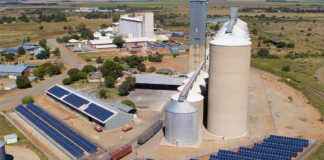Government has allowed for 30 days of public consultations on the Restitution of Land Rights Amendment Bill (RLRAB) since it was gazetted on 23 May 2013. The Department of Rural Development and Land Reform (DRDLR) has since implemented a series of public consultation sessions around the country.
“This amendment bill is a ground-breaking development in the history of this country,” said advocate Bheki Mbili, chief director of KZN Restitution Support with the DRDLR. “The refined bill will be presented to Cabinet and if accepted, will then be sent to the Portfolio Committee on Rural Development and Land Reform to allow for further public comments. “If accepted there, it will be tabled before parliament and if approved, will then need to be signed into law by President Jacob Zuma.”
Mbili stressed that the re-lodgement process for land restitution claims was not yet open and that, in fact, a possible opening date had not yet been set. KwaZulu-Natal’s commercial farmers’ union, Kwanalu, has proposed to have the window period for the re-lodgement limited to a month instead of approximately five years.
The bill proposes to close the window for the re-lodgement of land restitution claims on 31 December 2018. According to DRDLR, the planned reopening process that first ended on 31 December 1998 was to allow those who missed the original deadline an opportunity to lodge land restitution claims. Kwanalu CEO Sandy la Marque said that while the union and Agri SA supported the principles and processes of land restitution, if the new claims re-lodgement process was reopened, it should be for a month because of the uncertainty that a longer process would cause in the existing agricultural sector.
“In view of the past experience with restitution, and particularly the capacity, budgetary and corruption-related problems and the high number of failed projects, Kwanalu is of the opinion that it would be unwise to reopen the claims process,” La Marque said. Kwanalu added that it welcomed the RLRAB’s intentions to make it a criminal offence to lodge fraudulent and frivolous claims and to allow for the Land Claims Court to decide on alternative compensation for successful claimants found unable or unwilling to use their land productively and sustainably.
It also approved of the minister of Rural Development and Land Reform being allowed to consider a number of factors before deciding on an appropriate form of compensation for successful claimants. The African Farmers’ Association of South Africa (Afasa) in KwaZulu-Natal has expressed the hope that the RLRAB would help address land ownership imbalances in the province. The union said that while sugarcane and timber production were the largest agricultural commodities in the province, most of the land was still owned by large companies.
“Why do so few own so much land?” asked Afasa KZN’s chairperson, Mandla Mthembu. “The amendment bill must remedy this situation.” Mthembu also urged the DRDLR to hold consultations on the RLRAB in the country’s most rural areas where, in the past, the inputs of isolated residents had been overlooked on issues related to land reform. “Many rural people can’t read and write and so they should be allowed to give oral input,” he said.
The National African Farmers’ Union (Nafu) said the many negative impacts of the Natives Land Act of 1913 would take a long time to remedy. “The window period for the re-lodgement must be open for as long as necessary to remedy the land issue, even if it makes our opponents sweat,” said Nafu’s executive director, Dr Mandla Buthelezi. “We even need a further five-year window period on top of government’s proposed five-year window.
“We are not concerned or afraid of what other people say or want.” The non-governmental organisation Association for Rural Advancement (Afra) said the number of processed and unprocessed land restitution claims from the first lodgement period was too low, given that approximately 3,5 million black South Africans had been forcibly dispossessed of their land by apartheid policies.
Afra added that this was cause for concern and that it wanted to see the DRDLR improve its claims verification and processing systems. Thabo Manyathi, Afra’s Rural Land and Citizenship Rights Programme co-ordinator, was responding to Mbili’s report that during the first claims lodgement window, 85 432 claims had been lodged, of which 71 292 were settled through financial compensation, 6 042 through land awards and 8 098 were still undergoing processing.
The Landless Peoples’ Movement (LPM) wanted people to be able to lodge restitution claims for land taken as far back as the 1400s. The current limit for these claims is from any time after 19 June 1913, when the Native Land Act of that year was first enacted. The LPM’s Gcina Shabalala said they strongly disagreed with government paying white landowners for successfully claimed land.











